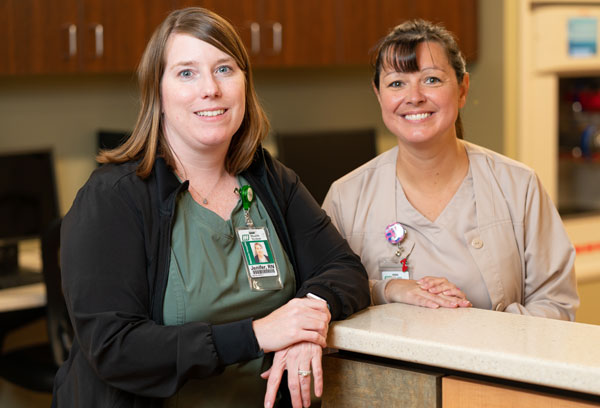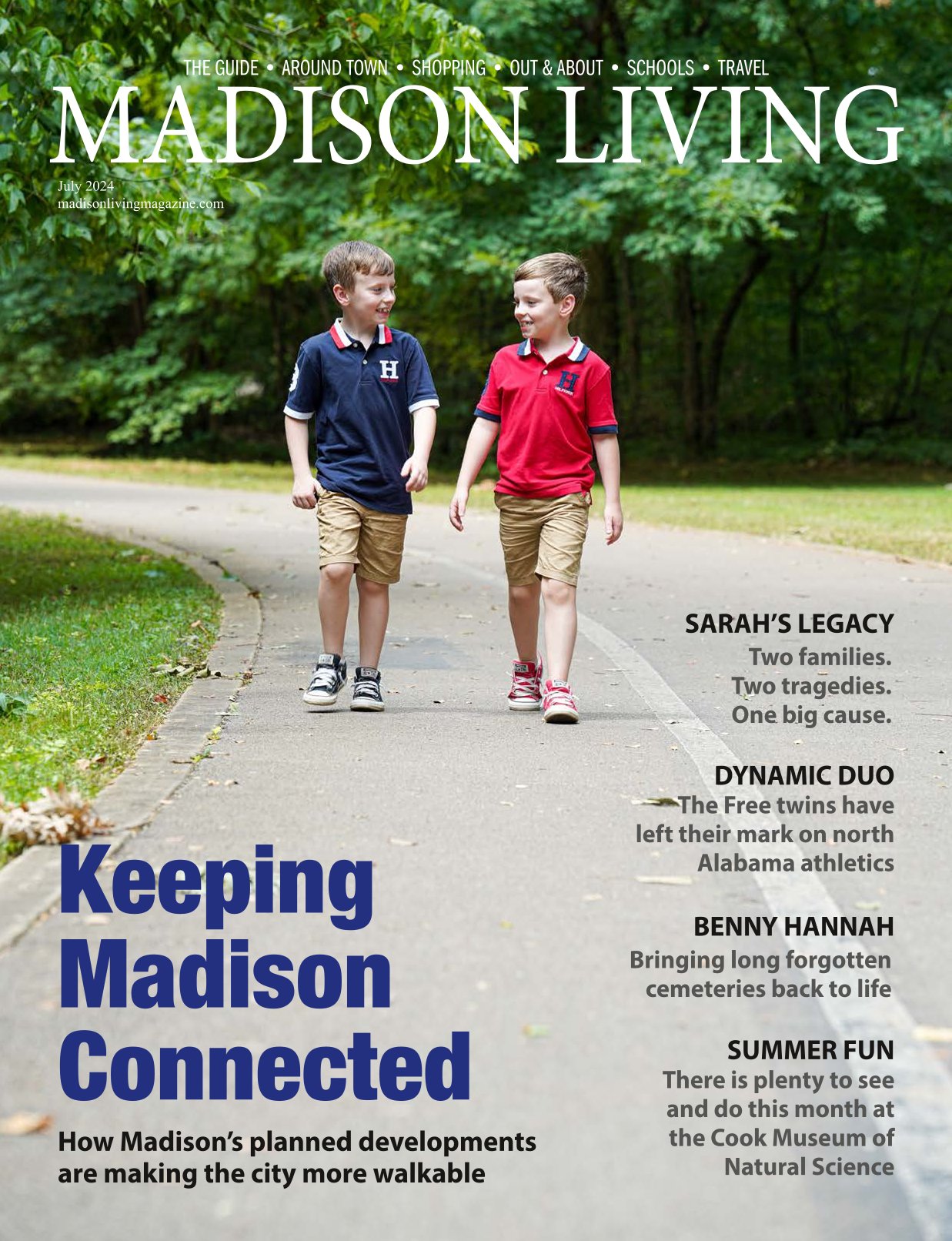Hospital pledges specialized care for patients with Alzheimer’s disease
WRITTEN BY GREGG L. PARKER
PHOTOGRAPHS BY JOSHUA BERRY
Forgetfulness comes first, then disorientation followed by memory loss – and escalating concern from relatives, colleagues and friends. Cases of Alzheimer’s disease are on the rise, and Madison Hospital’s staff has launched an initiative to help patients with dementia and Alzheimer’s.
“The statistics are staggering,” said Mary Lynne Wright, Madison Hospital president. Wright initiated the hospital’s focus on dementia after conversations with patients’ families and a Huntsville Hospital Foundation meeting that led to a corporate donation to fund training.
Jenifer Hagovsky coordinator of clinical excellence at Madison Hospital, is a certified clinical nurse specialist, which is a registered nurse with a master’s degree in nursing education. “Madison Hospital provided education with Julie Smith from Home Instead, a senior care company … that will certify a business as ‘Alzheimer’s Friendly,’” Hagovsky explained. “Madison Hospital became the first area hospital to become an ‘Alzheimer’s-Friendly Business.'”
Forget-Me-Not, the hospital’s program, is named for the flower that symbolizes Alzheimer’s care “and touches on our program’s goal to not forget patients with dementia need specialized, focused care,” Hagovsky said.
Undoubtedly caregivers, including relatives, face great challenges. “That’s why Madison Hospital has launched this pilot program to educate clinicians, medical staff, caregivers and the general public to better serve patients and their families,” Hagovsky added.
The program’s first step is strategic training for Madison Hospital’s entire staff – even environmental workers, food services employees and all clinicians. “Even our non-clinical employees interact with patients while delivering meals or providing housekeeping duties,” Hagovsky said. “Training our entire staff will benefit patients during hospital stays.”
Madison Hospital employees can easily identify an Alzheimer’s patient by a Forget-Me-Not magnet on the room door. Employees then can adjust their approach and certain interactions with the patient. Hagovsky also designed patient armbands with Forget-Me-Nots as a visual cue when patients leave their rooms.
“These subtle reminders will help. It’s imperative that the community and particularly healthcare providers learn to respond to those with dementia and Alzheimer’s disease in the most effective and compassionate ways,” Hagovsky said. “Forget-Me-Not training will cover the basics of Alzheimer’s and dementia care and will educate participants to better understand patient behaviors, communicate effectively with Alzheimer’s patients and ultimately provide patient-centered care.”
Dementia is an umbrella term for symptoms that ultimately result in mental decline, Hagovsky said. Alzheimer’s disease is the most common form of dementia. About 60-80 percent of elderly patients will experience dementia. As patients live longer, healthcare workers commonly will meet patients with dementia, specifically Alzheimer’s.
Madison Hospital employees will learn in two levels of educational training: continuing education seminars for area physicians and community programs “to train and support relatives and the community-at-large,” Hagovsky said.
Hospital coordinators will start the community program in November 2018. Residents can experience similar learning options at no cost.
Clinical staff and caregivers will train in two ways: instructional components and “an unforgettable, sense-altering exercise designed to offer insight into the world of Alzheimer’s patients, potentially the Virtual Dementia program,” Hagovsky said.
Dr. P.K. Beville of Atlanta created Virtual Dementia, which “involves healthy persons being outfitted and encumbered simultaneously with a number of overwhelming sensory obstacles,” she said. Participants react to scenarios with loss of vision, hearing and touch, along with reduced focus and acuity. For example, participants wear goggles to mimic visual disturbances. “They experience what dementia is like for 10 minutes, but their patients have to deal with the disease all day, every day,” Hagovsky said.
Huntsville Hospital Foundation is funding the program completely, thanks to the generosity of a grant from a local family foundation.
“Without the support from local donors, programs like this one would not be available to our patients and community,” said. “Madison Hospital’s goal is to make a difference – and this helps us do just that.”





